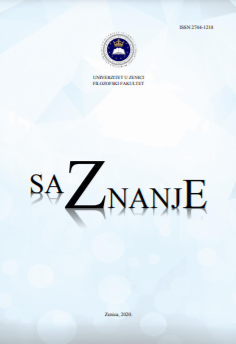PROSTORI KULTURE: POKUŠAJ MAPIRANJA KULTURNIH DOBARA GRADA OSIJEKA
CULTURAL SPACES: MAPPING OSIJEK CULTURAL HERITAGE COLLECTION DATA
Author(s): Luka Alebić, Sabina Horić AlebićSubject(s): Museology & Heritage Studies, Cultural Anthropology / Ethnology, Methodology and research technology
Published by: Filozofski fakultet, Univerzitet u Zenici
Keywords: cultural mapping; organized complexity; data visualization; cultural analytics; augmented cartography;
Summary/Abstract: Today's moment is extremely socially complex, and as such requires constant intellectual parrying (asking the right questions, finding theoretical answers, and practical actions) (Knausgard, 2019). The epistemological, contemporary context of information and knowledge production, as well as the strong imperative of finding answers to the constant flux of everyday social phenomena, also requires complex theoretical and practical research. Continuing Warren Waeaver's idea of organized complexity (1947), as well as the contemporary research within the digital humanities (Presner and Schnapp, 2009), this paper finds the complexity of todays scientific expression in the production of scientific arguments who creates their interdisciplinarity from the simultaneity but also the equality of textual and visual expression. Precisely for this reason, the form of the map and the mapping process (methodology of digital humanities) will be a key tool in finding answers to questions arising from the contemporary thematization of cultural heritage. This paper, through the discourse of cultural geography and mapping procedures, explores the configuration of Osijek 's cultural heritage. Using public data from the register of cultural goods of the Ministry of Culture of the Republic of Croatia, in addition to textual argumentation, we produced modern interactive maps that can serve both professionals and the widely understood user. The paper seeks to argue why and how to use the mapping process. Moreover, it is imperative for research to produce, in addition to the usual textual expression, scientific graphic forms of argumentation, which are a kind of methodological procedure known as research through design. This approach, in addition to a fundamental reasons for finding answers to the questions posed in the hypothesis, aims to open, by its generative nature, an epistemological path to similar research, which will thematize and open new areas of investigations in the fileds such as cultural, industrial and digital heritage.
Journal: saZnanje
- Issue Year: 2/2020
- Issue No: 2
- Page Range: 249-262
- Page Count: 14
- Language: Croatian

